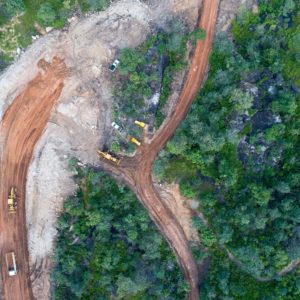Date: August 2020 - September 2021 (15 months)
Countries of intervention: Global and Colombia, Ghana, Liberia and Peru
Donor: The Forest Carbon Partnership Facility (FCPF). Forest-Smart Mining is part of the World Bank’s broader Climate Smart Mining initiative, which supports the responsible extraction, processing and recycling of minerals while minimizing the climate and material footprint throughout the value chain.
Consortium: Levin Sources, Alliance for Responsible Mining (ARM) and Fauna & Flora International (FFI)

Objectives
The main goal of this World Bank-funded project is to develop a ‘Bolt-on’ Standard and guideline for forest-smart mining (FSM) in the artisanal and small-scale mining (ASM) sector that can be adapted and adopted into existing responsible mining and sourcing initiatives, certification systems, management systems, and regulations and ultimately ground-truthed and piloted in four diverse sites.
Today, mining is responsible for up to 7% of forest loss in developing countries with more than half of the 47 countries engaged in REDD+ considering the mining sector as a driver of deforestation. This project, the first of its kind aiming to establish practical guidelines for the sector to adopt, is showing that there is another way through FSM.
What is Forest-Smart Mining (FSM)?
Forest-Smart Mining is mining that acknowledges and understands the relationship between forests and other land uses such as socio-economic uses and ecosystem services, and actively seeks to reduce loss or damage to those uses, and in some cases, promote a net gain for them. The World Bank conceived Forest-Smart Mining as part of its Climate Smart Mining Initiative, which was launched in 2019.
Methodology
After designing an action plan, the consortium will draw from workshops and consultations with specially convened global and national advisory panels to detail a guideline and principles, criteria and indicators (PCIs) for FSM in the ASM sector.
Once the FSM PCIs for ASM are finalized as a ‘Bolt-on’ Standard, key upstream and downstream stakeholders will be involved in promoting their uptake by ASM standards, certification schemes, responsible mining and sourcing initiatives, and possibly even to inform national policies and regulatory frameworks.
The consortium will prepare pilots of the FSM ASM ‘Bolt-on’ Standard, including roadmaps and budgets, in selected sites in Colombia, Peru, Liberia and Ghana.
Anticipated results
By the end of the project, the consortium aims to have reached the following main goals:
- FSM principles ready for inclusion in ASM Standards and Certification mechanisms leading to the creation of new opportunities for their application.
- Bridges built with and an interest in ASM generated amongst carbon finance and nature-based solutions communities.
- Governments get the tools to strengthen the sustainability of their ASM sector while contributing to their climate commitments.
- Targeted ASM communities get access to technical advice to improve the quality of their activities, open up to new markets and access innovative sources of funding.
- Development partners define a path to involve the ASM sector in REDD+ development and have identified sites/projects and developed specific roadmaps for concrete implementation of Forest-Smart ASM.




